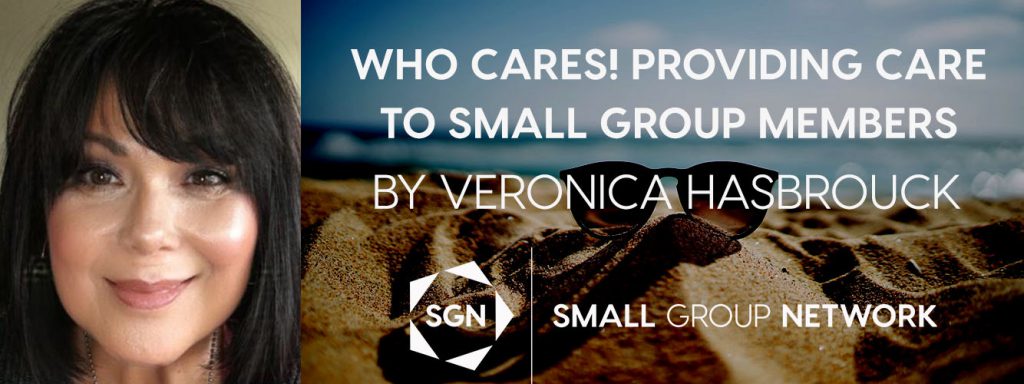
Start a “Huddle” this month & receive FREE swag!
Your small group has been meeting for some time; you are experiencing true fellowship and developing authentic relationships. Suddenly, one of your small group members gets some devastating news…their health has taking a dive or they are experiencing the loss of a loved one. How do we respond as small group leaders?
It’s not always easy, but God did create us to live in Community with him and each other. So, brotherly love matters, good works matter, bearing each other’s burdens and encouraging one another matters.
Your role as the leader, primary encourager and caregiver is to model care well because it’s impossible for you to provide all the care for all of your group members.
As they watch and experience your leadership, they can begin to develop hearts of love and care for each other. In his book Leading Life-Changing Small Groups, Bill Donahue describes four types of care we as leaders can give. I have adopted these ideas into our small group training and have found them super helpful in caring for our people in time of need or crisis so we set good healthy boundaries and won’t burn out.
They are:
Personal Care:This is care that the group leader directly gives to the members of the group. Prayer support, friendship, phone calls, emails, encouragement, visits for illness and finding resources to help meet other needs.
Mutual Care:Is the care group members give to one another such as; celebrating birthdays, new babies, anniversaries, new jobs and other occasions. As they reach out to each other their skills for listening and praying for each other grow.
Back Up Care:This type of care is needed when the needs of the small group member are greater than what the small group can give on its own. This would include a long term or serious illness or crisis, help around the home, long-term help with meals or rides to doctor’s appointments. Your ministry leader or coach would be your next point of help and assistance. Some churches may have a care ministry designated to provide this type of support.
Caring For People In Pain: C.S. Lewis wrote; “God whispers to us in our pleasures, speaks in our conscience, but shouts in our pains.” Nobody wants pain of any kind and as Christians we know that it is through the struggles that we grow. So how do we respond to people in pain? Many times as leaders we can “take on” the responsibility for trying to make others feel better. But we have to remember there is not much we can do or say to relieve other peoples pain but, did you know that just your presence can be a huge support to them. Pray for wisdom to know when a scripture or reminder of how faithful God can be would be helpful. Also try to keep this in front of you… we can be supportive and encouraging to the members of the group but we are not trained professional counselors. Situations that may require professional referrals could be the following: Serious marriage issues, addictions, mental Illness, emotional imbalance and abuse or a history of abuse.
If you are dealing with any of these situations with your group members contact your coach or staff member and together you can find resources for them.
Last word on care, if it is a life-threatening emergency whether to themselves or others call the police immediately. I would also suggest checking with your pastoral staff to see what protocols they have in place for these types of crisis situations.
Author
-
Veronica is the life group director at Newbreak church in sunny San Diego. Life Groups, training and connecting people in life groups is her passion! As a true extrovert she gets powered up when people get connected in groups either attending or leading. Her favorite type of life groups are activity groups where people get together doing something they love. The setting allows for very natural and organic conversation about their life. Being Christ followers they begin to talk about how God is working in their life and there you have it! An evangelistic moment! Amazing!
View all posts





